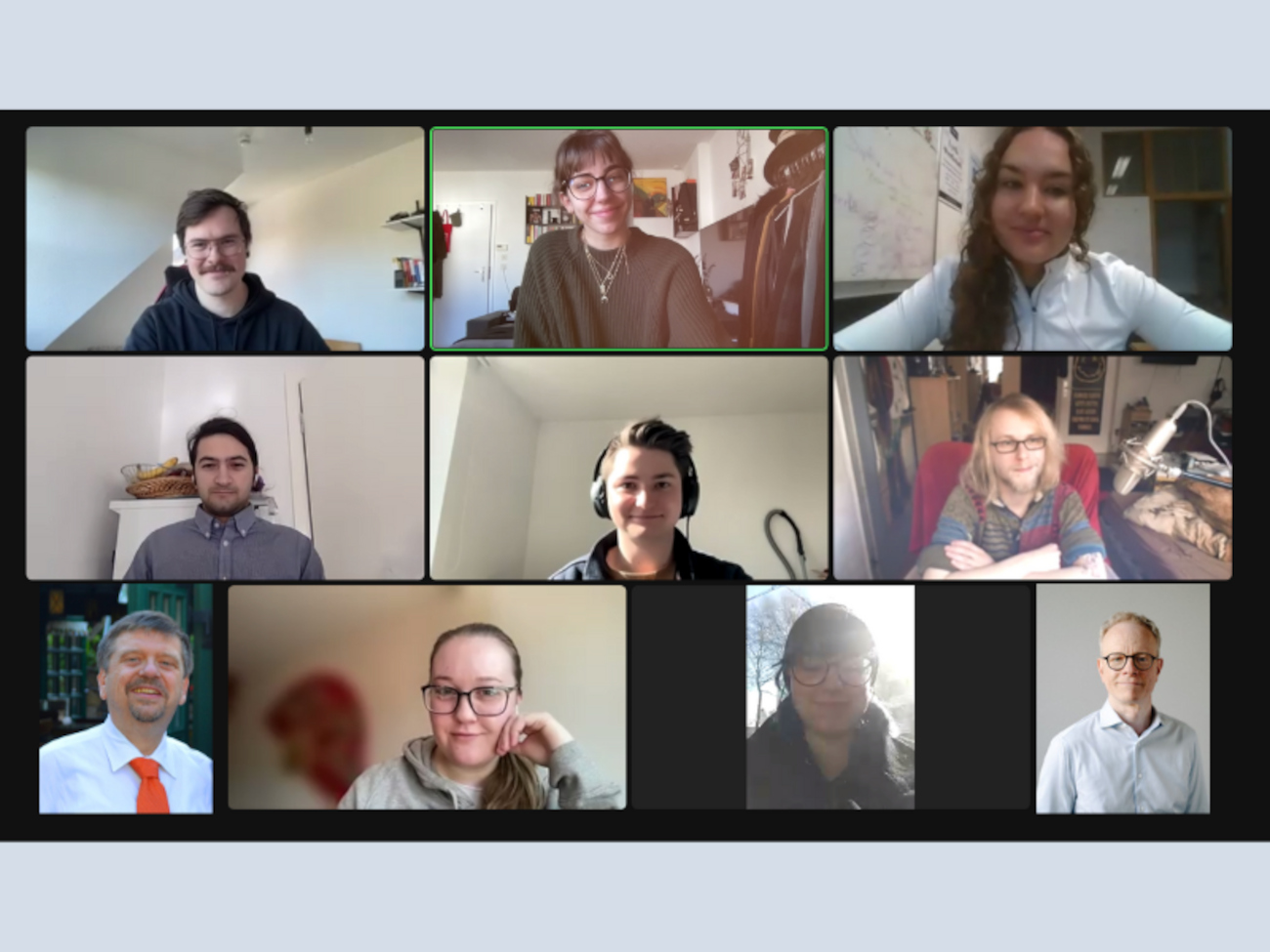
© contrastwerkstatt / Adobe Stock
For Students, By Students: International Conference Provides a Platform for Projects and Ideas
“Debate, Object, Protest – Interdisciplinary Perspectives on Linguistic Practices of Contradiction” on May 5 and 6, 2023.
Students of linguistics from the University of Bremen and the University of Vienna are organizing an international student conference together with their lecturers on May 5 and 6, 2023. The special feature: Not only PhD students will hold presentations and discussions, but there will also be a platform for bachelor’s and master’s students. Because often, students do not have the opportunity to present their projects and ideas in a way that is low-threshold and free of charge. In this interview, Lara Berlage from ThemaTalkers that are organizing the conference together with Worlds of Contradiction (WoC), tells us what the conference is all about.
How did you come to host this conference?
The ThemaTalkers group was born in the “Conception, Planning, and Realization of an International Student Conference” course, which can be taken as an elective module in the German Studies master’s program as well as in General Studies. We are at present eight students in total from the University of Bremen and the University of Vienna. The goal of the course led by Professor Ingo Warnke is to plan a conference that will provide a platform for students from linguistics, literature, and related fields such as cultural studies and social sciences to present and discuss their projects and ideas.
What is special about the conference?
At many conferences the presentations are given by PhD students, professors, established researchers, and other experts – sometimes master’s students. We wanted to create a platform for all students – including undergraduates – in order to practice planning an academic event, giving presentations, and engaging in discussions in a more protected setting. It is not exclusively about presenting final projects. Term papers, essays, and the like may be presented as talks or in other forms. The only prerequisite this year: It must fit the overall “Debate, Object, Protest” conference theme. The results of the conference will subsequently be published in an online publication. What else sets the conference apart? It is free of charge for presenters and audience alike. In addition, there are no travel expenses because the event takes place both digitally and on the University of Bremen campus.

© ThemaTalkers
What exactly is the ThemaTalkers group about?
First, ThemaTalkers are about independently planning and executing an academic conference: From defining the exact topic, organizing the call-for-papers, selecting the keynote speakers, the presenters, and the facilitators, as well as compiling the online publication. Professor Warnke and Professor Ernst accompany and advise us in this process. They work with us on an equal footing. I find this non-hierarchical collaboration with the professors to be particularly valuable. In addition to the invaluable experience of planning a conference, participants have the opportunity to network with the academic community. Those who want to advance an academic career will also gain a better insight into what criteria a good paper has to meet. In general, you gain important experience for your professional life plus you earn credit points, because the ThemaTalkers are part of a university course.
What is the focus of the conference?
The conference is linked to the Worlds of Contradiction collaborative research platform – WoC for short – of which Professor Warnke is the spokesperson together with Professor Michi Knecht. Due to this link, the focus of the conference is also on “contradiction.” This means that all talks deal with the topic of contradiction in a broad sense as well as with the question of how dissent is expressed on the linguistic level – for example, in relation to literature, education, gender, or politics. Contradiction can be the topic itself – that is, A contradicts B. Or the talks might deal with linguistic nuances that lead to contradiction. Of course, there will be time for discussion as well.
How do I get involved with the ThemaTalkers group and/or the conference?
Paper registrations for the conference are no longer possible, but all interested parties are welcome to listen and join in the discussions. Even if the current conference planning is already completed, interested people can still join the ThemaTalkers group – even in the middle of the semester – and, for example, collaborate on the publication or help plan the next conference. After all, ThemaTalkers and its concept are to be continued.
International Student Conference “Debate, Object, Protest – Interdisciplinary Perspectives on Linguistic Practices of Contradiction”
The ThemaTalkers online event will take place on May 5 and 6, 2023. The event starts at 9 a.m. – both digitally and as a public viewing in GW2 Building, block A, room 3.570 at the University of Bremen. Bachelor’s and master’s students from the universities of Bremen, Bielefeld, Frankfurt am Main, Graz, Jena, Marburg, Paderborn, Trier, Tübingen, and Vienna will present their topics in 15- to 30-minute sessions. The presentations are in German. The speakers also include two fellows of the “Contradiction Studies” DFG Research Training Group as well as keynote speakers Dr. Mark Dang-Anh from the Leibniz Institute for German Language Mannheim and Prof. Dr. Martin Reisigl from the University of Vienna.
For the digital event and your access details, please register at themtalk@uni-bremen.de. If you are interested in joining the ThemaTalkers group, please also send an email to the above address. Further information and the program are available at https://www.uni-bremen.de/thematalkers (in German only).